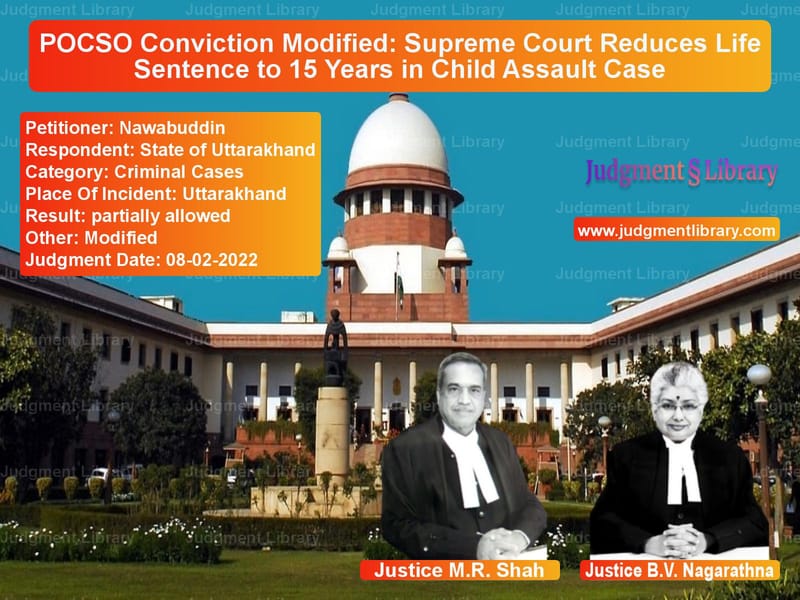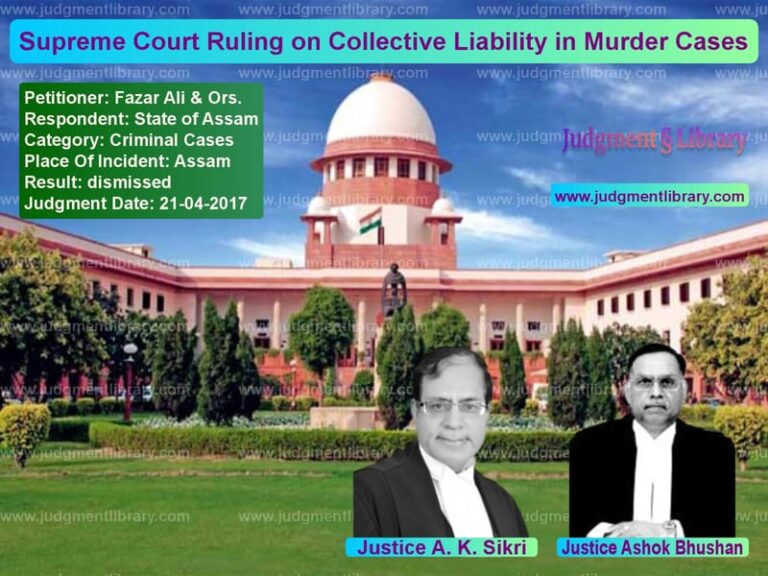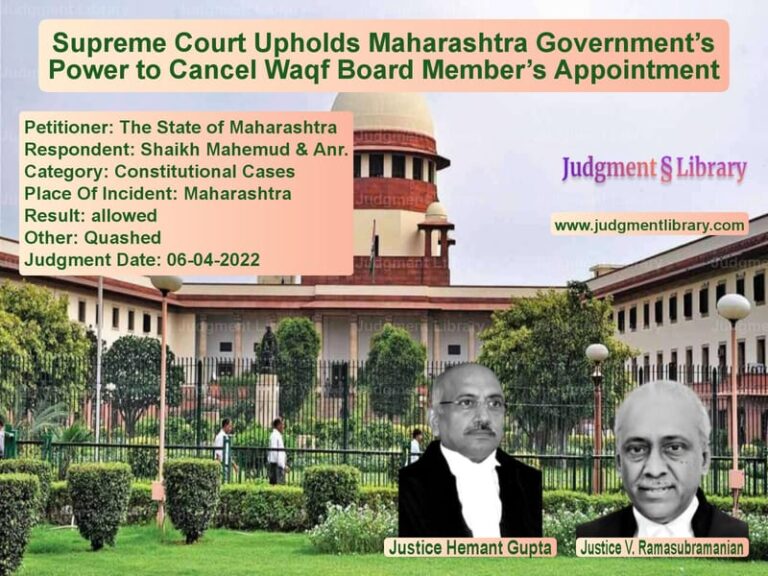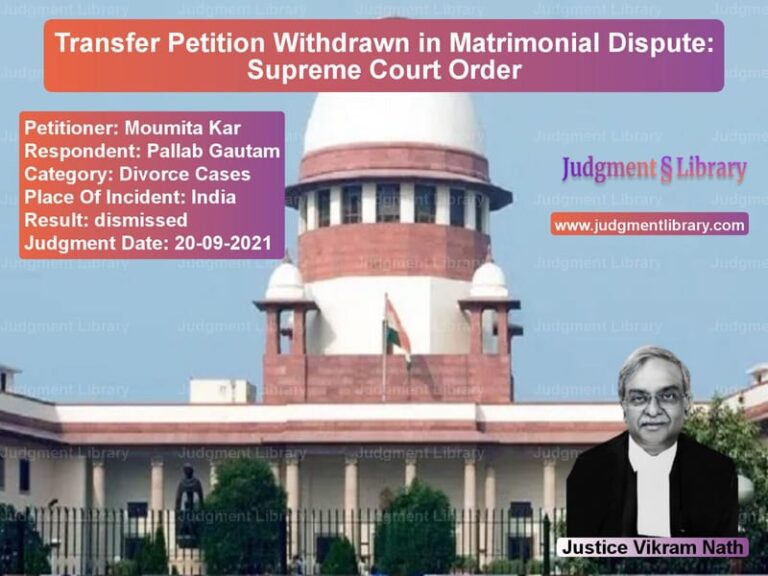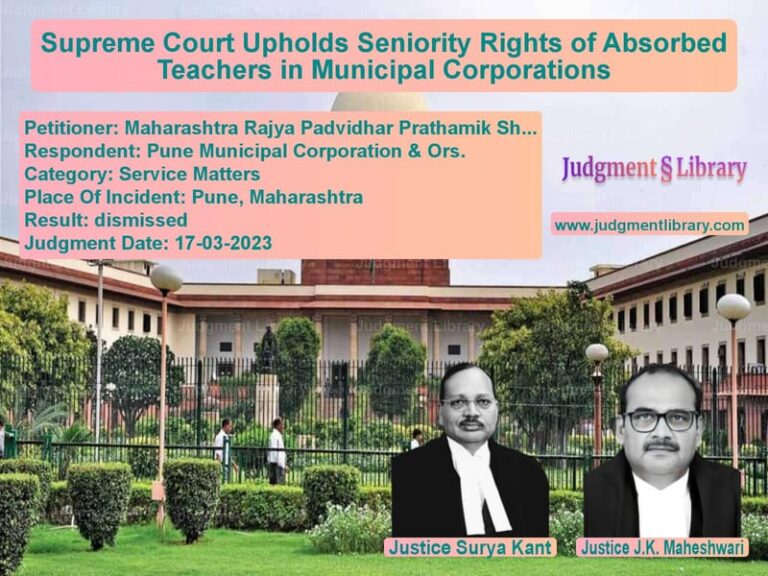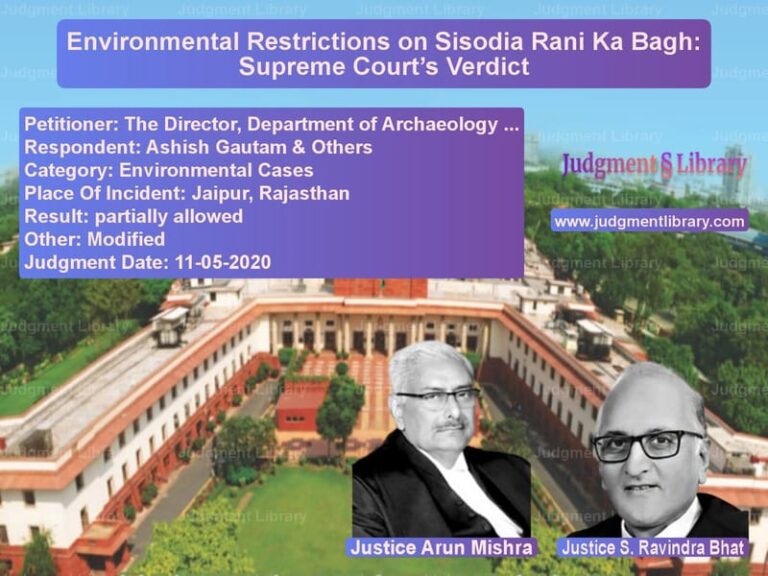POCSO Conviction Modified: Supreme Court Reduces Life Sentence to 15 Years in Child Assault Case
The case of Nawabuddin vs. State of Uttarakhand is a significant ruling under the Protection of Children from Sexual Offences Act, 2012 (POCSO Act). The Supreme Court had to determine whether the life imprisonment sentence imposed on the accused for aggravated penetrative sexual assault was justified or whether a lesser sentence would be appropriate given the circumstances.
The ruling underscores the stringent provisions of the POCSO Act while also considering mitigating circumstances in sentencing.
Background of the Case
The case involved a heinous crime against a four-year-old girl in Uttarakhand. The prosecution alleged that on June 17, 2016, the accused, Nawabuddin, a 65-year-old neighbor of the victim, took the minor girl into the bushes and attempted to sexually assault her. He was caught red-handed by local residents, who then handed him over to the police.
The victim’s mother, PW-1, lodged an FIR, and the accused was charged under Section 376(2)(i) IPC and Section 5/6 of the POCSO Act. The trial court convicted him, sentencing him to life imprisonment along with a fine of ₹50,000, out of which ₹30,000 was awarded as compensation to the victim.
The High Court of Uttarakhand upheld the conviction and sentence. The accused then approached the Supreme Court, challenging both the conviction and the quantum of punishment.
Legal Issues Before the Supreme Court
- Was the prosecution’s evidence sufficient to establish the guilt of the accused beyond reasonable doubt?
- Did the actions of the accused amount to aggravated penetrative sexual assault under Section 5 of the POCSO Act?
- Should the life imprisonment sentence be upheld, or was a lesser sentence warranted?
Arguments Before the Supreme Court
Appellant’s Arguments (Nawabuddin)
The defense, led by senior counsel, argued:
- The conviction was primarily based on the testimony of PW-10, Dr. Vandana Sundriyal, who examined the victim. However, there was no direct eyewitness testimony.
- The alleged mobile recording of the incident was never produced or proved in court.
- At best, the case should be classified as an attempted assault rather than aggravated penetrative sexual assault.
- Given the accused’s advanced age (now around 75 years) and medical condition (suffering from tuberculosis), a lesser sentence would be appropriate.
Respondent’s Arguments (State of Uttarakhand)
The State of Uttarakhand, represented by its legal counsel, countered:
- The prosecution had proved beyond doubt that the accused attempted to rape a four-year-old girl, making it a case of aggravated penetrative sexual assault under Section 5(m) of the POCSO Act.
- The medical evidence corroborated the victim’s pain and physical injuries, confirming attempted penetration.
- The accused was caught red-handed by local witnesses.
- Given the heinous nature of the crime, no leniency should be shown.
Supreme Court’s Judgment
The Supreme Court upheld the conviction but modified the sentence. The key findings were:
- The testimony of PW-10, Dr. Vandana Sundriyal, was credible and sufficient to establish the offense.
- The accused’s actions, including removing the victim’s clothes and attempting penetration, fell under the definition of aggravated penetrative sexual assault.
- The objective of the POCSO Act is to ensure stringent punishment for crimes against children, but sentencing must also take mitigating factors into account.
- Considering the accused’s age and medical condition, the sentence was reduced from life imprisonment to 15 years rigorous imprisonment, with the fine remaining unchanged.
The Supreme Court observed:
“The POCSO Act was enacted to protect children from sexual offenses, and cases of sexual assault on minors must be dealt with stringently. However, considering the mitigating circumstances, we deem it appropriate to modify the life sentence to 15 years rigorous imprisonment.”
Key Observations from the Judgment
- Stringent Punishment for Child Sexual Assault: The Court reaffirmed that sexual crimes against minors are grave offenses requiring severe punishment.
- Role of Medical Evidence: Even in the absence of direct eyewitnesses, medical findings can corroborate the victim’s testimony.
- Judicial Discretion in Sentencing: While the law prescribes harsh punishments, courts have the discretion to modify sentences based on mitigating circumstances.
- Applicability of Section 5(m) POCSO Act: The judgment clarifies that an assault on a child under 12 years automatically qualifies as aggravated penetrative sexual assault.
Impact of the Judgment
This ruling has significant implications for child protection laws and sentencing principles:
- For Child Protection Laws: Reinforces the need for strong legal safeguards against child sexual abuse.
- For Sentencing Guidelines: Establishes that courts must consider age and health conditions while imposing sentences.
- For Future Cases: Provides a reference point for cases where life imprisonment may not be mandatory under the POCSO Act.
- For Legal Practitioners: Highlights the importance of medical evidence in proving cases under the POCSO Act.
Conclusion
The Supreme Court’s ruling in Nawabuddin vs. State of Uttarakhand reinforces the gravity of child sexual abuse cases while acknowledging the role of judicial discretion in sentencing. By modifying the sentence to 15 years rigorous imprisonment, the judgment balances the objectives of the POCSO Act with the principle of proportionality in punishment.
This decision serves as a critical precedent for similar cases, ensuring that justice is served while taking into account the specific circumstances of each case.
Petitioner Name: Nawabuddin.Respondent Name: State of Uttarakhand.Judgment By: Justice M.R. Shah, Justice B.V. Nagarathna.Place Of Incident: Uttarakhand.Judgment Date: 08-02-2022.
Don’t miss out on the full details! Download the complete judgment in PDF format below and gain valuable insights instantly!
Download Judgment: nawabuddin-vs-state-of-uttarakhand-supreme-court-of-india-judgment-dated-08-02-2022.pdf
Directly Download Judgment: Directly download this Judgment
See all petitions in Rape Cases
See all petitions in Judgment by Mukeshkumar Rasikbhai Shah
See all petitions in Judgment by B.V. Nagarathna
See all petitions in partially allowed
See all petitions in Modified
See all petitions in supreme court of India judgments February 2022
See all petitions in 2022 judgments
See all posts in Criminal Cases Category
See all allowed petitions in Criminal Cases Category
See all Dismissed petitions in Criminal Cases Category
See all partially allowed petitions in Criminal Cases Category

